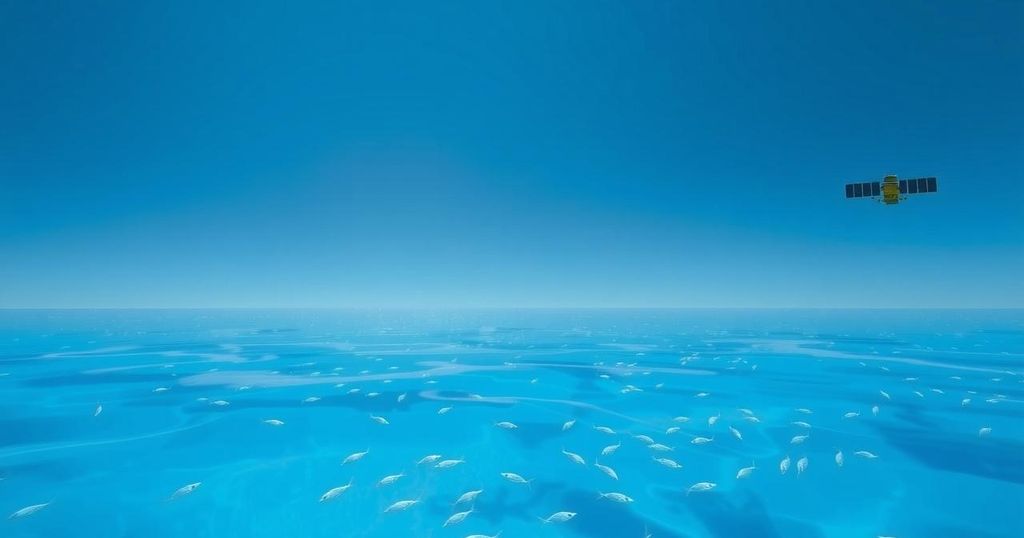Scientists are initiating a satellite monitoring project to track Antarctic krill populations. This collaborative effort aims to provide data to inform fishing regulations and protect krill habitats. Using satellite technology, researchers will observe changes in water coloration caused by krill. The initiative, ‘Krill from Space’, involves the WWF, University of Strathclyde, and British Antarctic Survey, emphasizing the species’ crucial ecological role amid climate change challenges.
An international collaboration has commenced to monitor the population of Antarctic krill, a vital species within marine ecosystems. Utilizing satellite technology to detect changes in red coloration of the water, this initiative aims to gather precise data that will aid regulatory decisions concerning fishing in the Southern Ocean. Krill, small shrimp-like creatures, are crucial to sustaining major marine consumers, including whales, squids, and penguins, and can form vast schools visible from space.
The project, titled ‘Krill from Space’, was revealed at the 26th session of the Conference of the Parties (COP) to the Paris Climate Agreement held in Baku, Azerbaijan. This initiative brings together the World Wildlife Fund (WWF), the University of Strathclyde, and the British Antarctic Survey (BAS), aiming to establish a robust monitoring program for krill populations from space.
Dr. Cait McCarry from the University of Strathclyde emphasized the significance of their measurement techniques, stating, “We start with seawater, then we add in a krill and take a measurement [of how much light the water absorbs]. Then we add another krill and take another measurement.” These methodologies are critical for understanding the health of krill populations and their habitats in the context of global environmental changes.
Rod Downie, Chief Polar Advisor at WWF-UK, underscored the urgency in managing krill fisheries, stating, “With sea ice declining and industrial fishing growing, we urgently need to better manage the fishery and protect krill habitats within a network of marine protected areas.” Effective monitoring through this project may provide essential insights for conservation efforts and support the health of these important marine ecosystems.
Notably, Antarctic krill are believed to play a significant role in the ocean’s carbon cycle, feeding on phytoplankton and then contributing to carbon sequestration through their waste. Oceanographic Magazine highlights that rising sea temperatures and diminishing sea ice have contributed to shifts in krill populations, resulting in potential ecological disturbances.
David McKee, Reader in the Department of Physics at Strathclyde, expressed excitement about the partnership, stating, “This is a ground-breaking effort to develop a new way to monitor krill swarms at the surface where they are known to occur in huge patches that are important feeding grounds for whales and other important marine species.” The collaborative endeavor aims to contribute meaningfully to the conservation and management of Antarctic resources.
The formation of the ‘Krill from Space’ initiative represents a significant advancement in the monitoring of Antarctic krill populations. By integrating satellite technology with ecological data, this project seeks to enhance the management of fishing regulations while protecting vital marine habitats. Ultimately, the collaboration among WWF, the University of Strathclyde, and BAS highlights the importance of conserving this keystone species and its role in maintaining global carbon cycles and marine biodiversity.
Original Source: www.goodnewsnetwork.org






